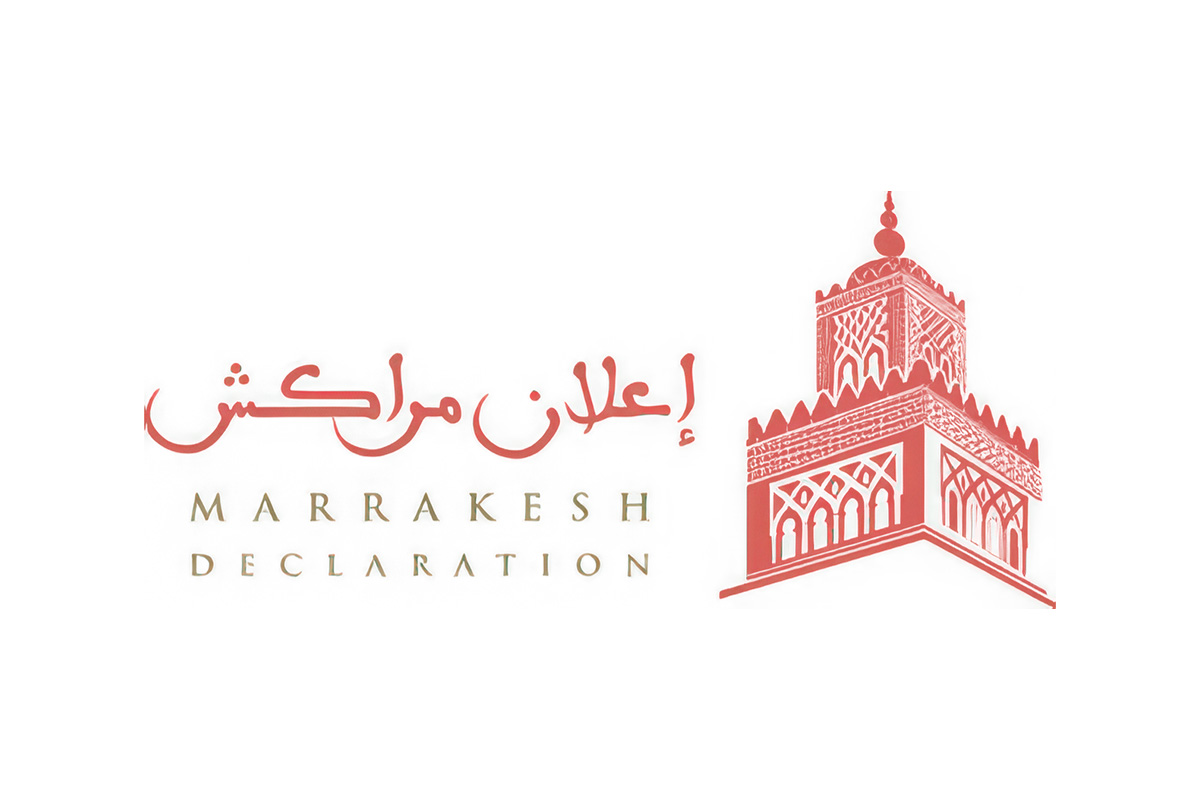The Marrakesh Declaration
The Marrakesh Declaration
The Marrakesh Declaration is a statement made in January 2016 by “more than 250 Muslim religious leaders, heads of state, and scholars”, [1] which champions “defending the rights of religious minorities in predominantly Muslim countries“. [2] The declaration was made in Morocco and “representatives of persecuted religious communities — including Chaldean Catholics from Iraq” were included in the conference. [3] The conference, at which the Marrakesh Declaration was signed, was called in response to the persecution of religious minorities, such as Christians and Yazidis, by ISIS. [4]
The Marrakesh Declaration builds on historical Islamic sources such as the Charter of Medina. [5] Morocco stated “We in the kingdom of Morocco will not tolerate the violation of the rights of religious minorities in the name of Islam…I am enabling Christians and Jews to practice their faith and not just as minorities. They even serve in the government.” [6]

Responses
The declaration has been widely welcomed. Some commentators called for consistent legal and practical follow through of the sentiments expressed including in the country where the declaration was forged, which does not recognize its own indigenous Christians and persecutes and imprisons them, [7][8] or in the birthplace of Islam, where there are reportedly many Saudi Christians.
The Marrakesh Declaration is a statement that protects the rights of religious minorities in countries with Muslim majorities. It was issued in January 2016 by a group of Muslim scholars, politicians, activists, and interfaith clergy.
What does the declaration say?
- The declaration calls for the protection of religious minorities from discrimination, displacement, and persecution.
- It also calls for leaders of other religions to confront acts of discrimination and persecution against Muslim minorities.
- The declaration recognizes the freedom of individuals to practice their religion or belief.
Shaykh Bin Bayyah, President of Promoting Peace in Muslim Societies, led the declaration.
Cairo Declaration of Human Rights in Islam
Main article: Cairo Declaration of Human Rights in Islam
The CDHR was signed by member states of the OIC in 1990 at the 19th Conference of Foreign Ministers held in Cairo, Egypt. It was seen as the answer to the UDHR. In fact, the CDHR was “patterned after the UN-sponsored UDHR of 1948”. [1] The object of the CDHR was to “serve as a guide for member states on human rights issues.” [1] CDHR translated the Qur’anic teachings as follows: “All men are equal in terms of basic human dignity and basic obligations and responsibilities, without any discrimination on the basis of race, color, language, belief, sex, religion, political affiliation, social status or other considerations. True religion is the guarantee for enhancing such dignity along the path to human integrity.” [1] On top of references to the Qur’an, the CDHR also referenced prophetic teachings and Islamic legal tradition. [1]
